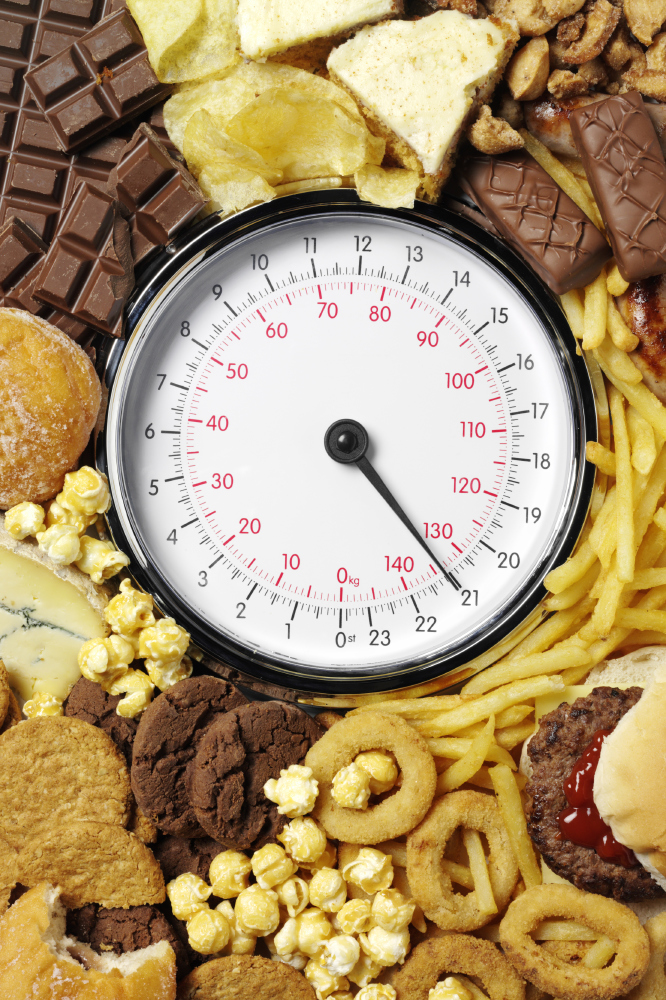
Don't let your weight loss come to a halt, fight temptation
Junk food may not be good for our health, with very little nutrients, but that doesn't mean it's not to resist.
It's everywhere. Junk food fills our high streets, TV adverts and it's pretty much plastered everywhere we walk, telephone boxes, the sides of buses and billboards too.
It's hard to resist when we're feeling hungry, tired or just fed-up.
Willpower is woefully over-rated - most people struggle to maintain self-control long-term, which is why the vast majority of diets ultimately fail.
But don't give up. Weight management expert & NHS weight loss surgeon, Dr Sally Norton, Vavista.com, offers 3 research-based reasons why fighting temptation might get easier over time.
1. There is increasing evidence that sugar is addictive
Not good news on the face of it, but when you realise that it could be an in-built addiction that has you reaching for the biscuit barrel again, rather than just weak willpower, it makes it easier to fight back.
More evidence is accruing that sugar has a similar effect to drugs like cocaine – triggering the release of dopamine – a feel-good hormone from the brain. Problem is that the more sugar we have, the less dopamine we seem to produce – leaving us looking for more sweetness to hit that high. Gradually reducing your dependence on that addictive substance will stop you craving it, although for some that is not enough and only going ‘cold-turkey’ and ditching all sugar can help them beat that addiction.
Once you have, though, the sugar cravings definitely decline – making it much easier to say no when the doughnuts are passed around.
2. MRI scans show we can change our brains hardwiring
High fat / high sugar / high calorie foods seem to stimulate our brain’s ‘reward centre’, triggering the feel-good chemicals that I have mentioned can lead to a type of addiction. Whilst just a very small study that needs further confirmation, some recent research has suggested that we can retrain our brains to enjoy healthier food.
This study from researchers at Harvard compared two groups of people – one group had followed a 6-month programme that taught healthy eating behaviour and provided support for weight loss; the other group had no access to the programme. The weight-loss programme group lost weight after 6 months, whereas the other group gained weight…no surprise there. What was interesting, though, were the results of MRI brain scans performed after 6 months. The scans of the participants on the healthy eating programme showed that the reward centre in the brain was stimulated more when they were shown images of healthy food and less by images of unhealthy, high calorie food, when compared to the group who hadn’t been on the programme. It proves we were not born to see doughnuts and chips as a ‘reward’ and can re-programme our brains towards desiring healthier treats. So stick with it!
3. Junk food reduces our desire for varied foods
A recent study on rats showed that when they had overeaten a particular type of healthy food, they stopped responding to it – naturally protecting them against overeating and encouraging them to try different foods. Makes sense – nature has developed an in-built mechanism to ensure we eat a healthy, varied and balanced diet – not gorging on one particular food-stuff.
Rats fed on processed foods such as pies, cakes, dumplings and cookies, however, didn’t stop responding to cues for this type of food – happily continuing on their junk-food diet and gained 10% in weight.
They had lost their in-built cue to eat a varied diet.
Again, these effects seem to be mediated through the ‘reward centre’ of the brain – presumably the ‘feel-good’ effect of these addictive, processed foods, had over-ridden natures attempts to encourage a balanced diet.
Does the same effect occur in humans? Well, the researchers think it is likely…and, let’s face it, as some people exist on virtually nothing but pizza, burgers and chips, they are probably right. The good news for us, is that by steering clear of these processed foods wherever possible, our body’s natural mechanism for encouraging us to eat a balanced diet stands more chance of steering us in the right direction.
So, tough as it is saying no to that cream cake, fast-food burger or bag of sweets, if you can summon your willpower for long enough, the latest studies are suggesting that it could get easier with time. Stick with it – you never know, but in a few months’ time you may be salivating at the thought of a crisp, fresh, vitamin and protein-packed chicken and avocado salad and not giving the pizza and ice-cream a second thought!

